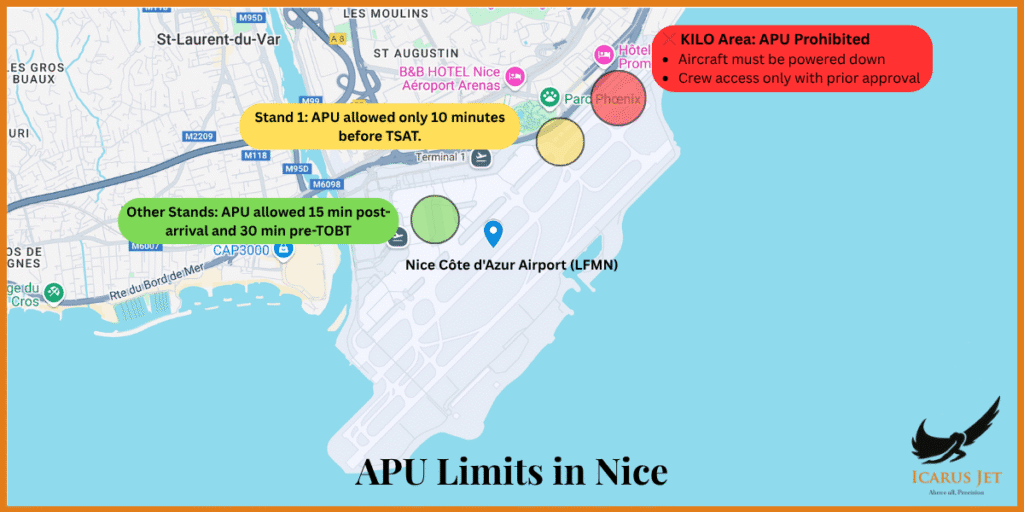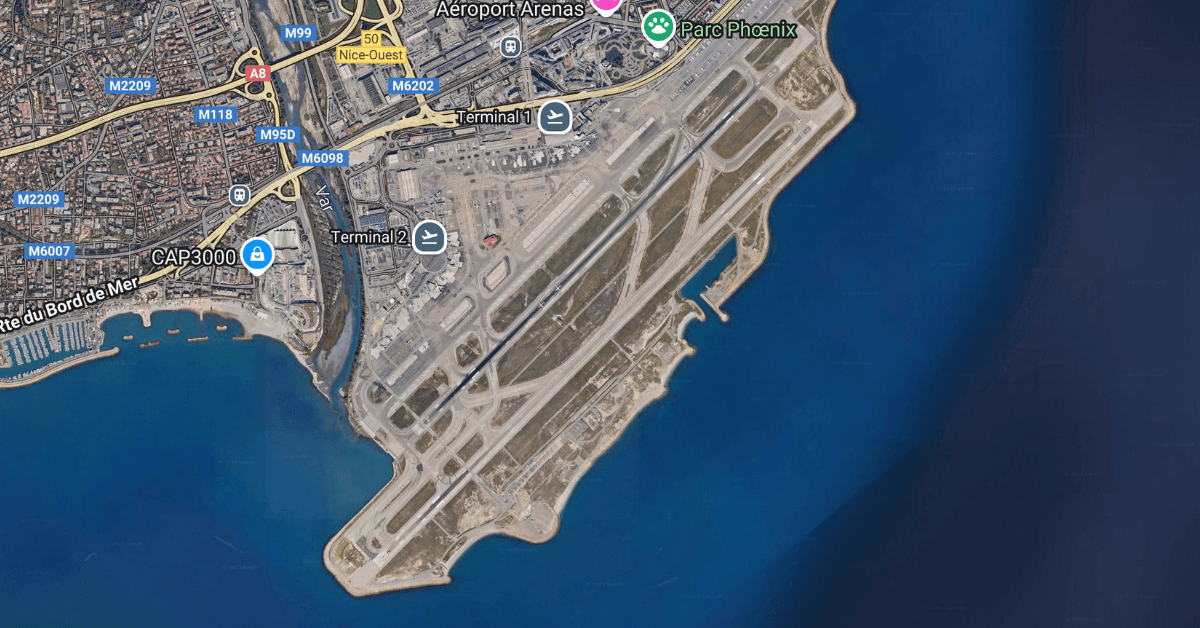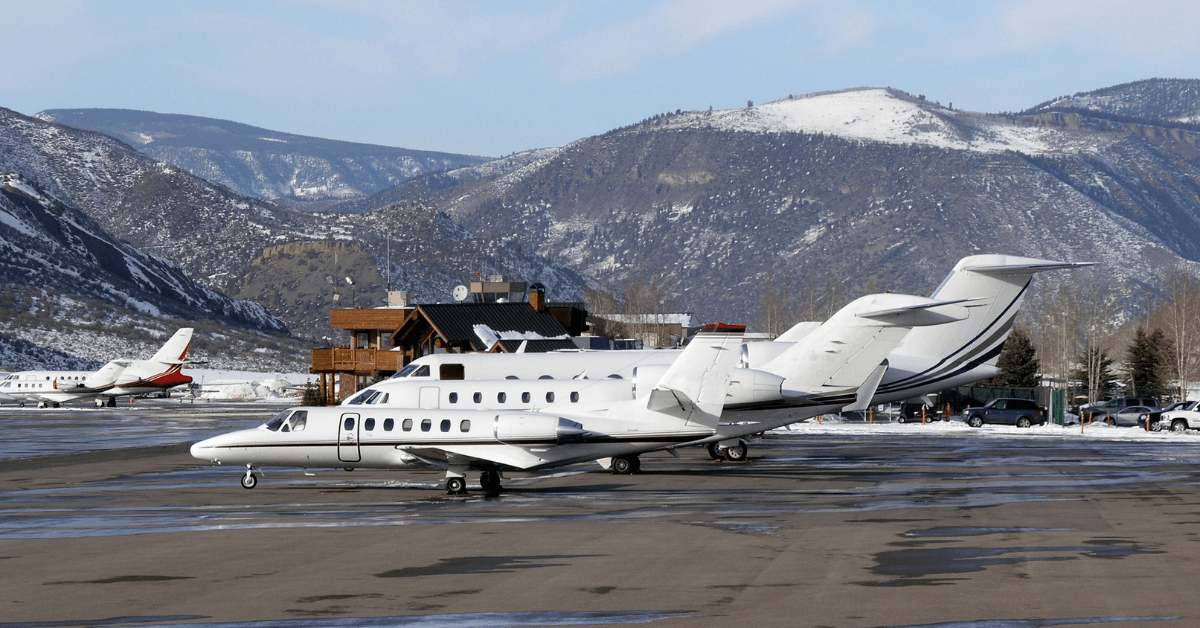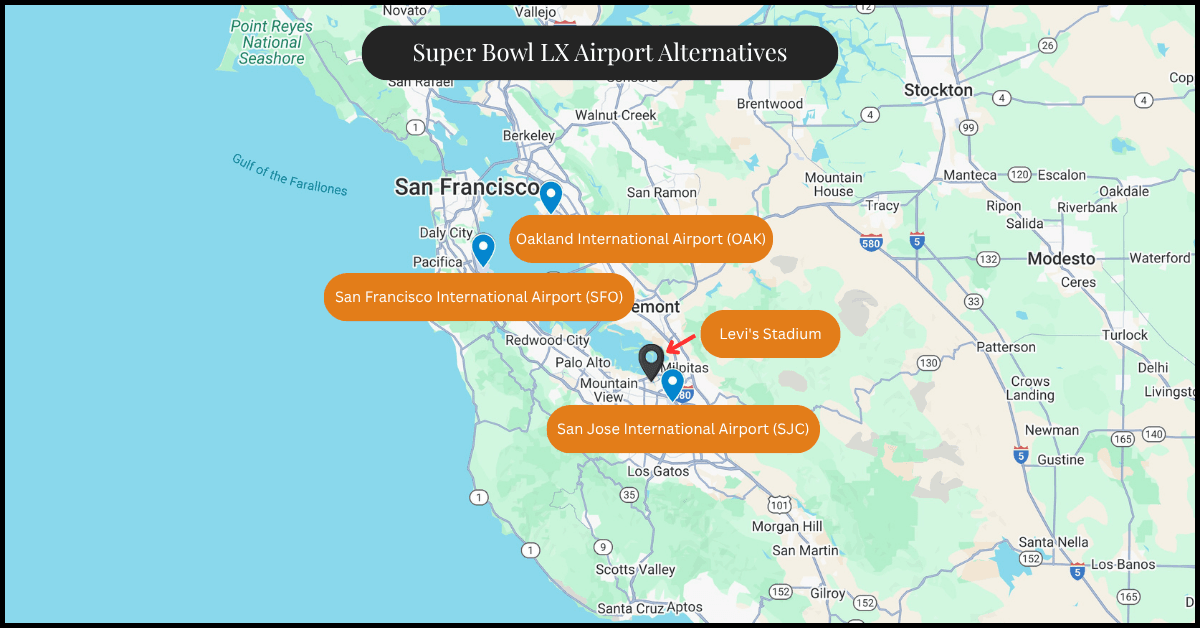Nice Côte d’Azur Airport (LFMN) is one of Europe’s most congested private aviation gateways, particularly during the summer months when traffic to the French Riviera reaches its peak. Whether it’s corporate or leisure travelers, the airport experiences plenty of private jet traffic. But pilots and crews operating into Nice are facing growing restrictions that can impact turnaround times, aircraft servicing, and cabin comfort: the airport’s strict APU (Auxiliary Power Unit) policies.
This blog explains the APU policy at LFMN, what it implies for business jet flights, and best practices to help flight departments manage the challenges, especially during hot-weather, high-traffic conditions.
APU use at LFMN
Nice Airport has among the most restrictive APU policies in Europe, in line with its environmental goals and noise abatement procedures. The airport operator, not ATC, enforces these rules, and crews should not expect exceptions without clearance.
The following is the current breakdown:
On Stand 1 (With Pop-Up GPU): APU usage is allowed within 10 minutes before TSAT (Target Start-Up Approval Time) alone.
Self-maneuvering stands: The crews can use the APU for 15 minutes after arrival and 30 minutes prior to TOBT (Target Off-Block Time).
KILO overnight parking area: Total prohibition of APU usage. After being towed into KILO, the airplane should be fully powered down and access is prohibited unless requested and approved by airport officials.
These procedures are enforced by spot checks, and handlers indicate that failure to comply can result in fines or operational delays. Given that the majority of contemporary aircraft rely on APU power for environmental control and system checks, particularly on hot days, this policy requires careful operational planning.

Why it matters
Private jet crews have reported that cabin temperatures can rise rapidly without air conditioning provided by APU. Ramp temperatures in Nice can be over 30°C (86°F) in the summer. This impacts not only passenger comfort but also the ability to perform required preflight checks, catering loading, and equipment checks.
The restrictions particularly affect long ground times and overnight parking scenarios, where usual APU operation for cabin preparation isn’t feasible. In hot weather, the inability to cool the cabin can lead to discomfort, delayed tasks, or schedule conflicts.
Best practices
As enforcement tightens, operators and pilots need to embrace proactive planning to ensure efficiency without compromising compliance. Here are some best practices based on recent feedback and reports from our partners and FBOs at LFMN:
1. Plan for short turnarounds
Where operationally possible, schedule short turns of under 60 minutes. This fits easily within the 30-minute pre-TOBT and 15-minute after arrival APU running time allowed.
It also minimizes the need for ground power and reliance on airport approvals for extended GPU access or tow requests.
2. Perform full service on arrival
Particularly for overnight parking in the KILO zone, ground servicing like interior cleaning, lavatory servicing, waste disposal, and refueling should be completed as soon after arrival as possible. Once the aircraft is towed into KILO, ground handling access is very restricted unless pre-approved specially in advance.
3. Strategic GPU use
Although not all parking stands have stable GPU access, Stand 1 has a pop-up GPU, which can provide support for essential systems and cooling for short ground stays. Nevertheless, GPU use also needs to be requested and planned ahead of time.
Crews can verify GPU availability with the Icarus Jet trip support team and check aircraft compatibility. Having the correct GPU connector or adapter onboard can avoid last-minute problems.
4. Cool aircraft during evening hours
If the aircraft is going to leave early the next morning, one solution is to cool the cabin when it is cooler in the evening, with the help of GPU. This will keep the cabin comfortable without needing to use the APU on warm mornings when it is prohibited.
5. Coordinate with ground handlers
FBOs and ground handlers can provide significant support in dealing with APU constraints. They can confirm towing timings, organize GPU connections, and request access exemptions where necessary.
LFMN APU policy in context
LFMN’s eco-policies aren’t unique. Across Europe, airports such as London Luton (EGGW), Zurich (LSZH), and Geneva (LSGG) are implementing or developing the same ground power and emissions processes. The momentum for cleaner, quieter, and more sustainable airport operations is being built, and private aviation will need to keep up.
Along those lines, APU limits at Nice are part of an overall movement toward environmentally friendly airport procedures. For private jet operators and crews, this will mean factoring such considerations into daily planning.
Final thoughts
Flying into LFMN in high season takes more than a slot – it takes a ground plan that respects real-world limitations. APU restrictions are now a part of the operational landscape at Nice, and crews that plan accordingly will prevent fines, delays, and last-minute surprises.
At Icarus Jet, we work in concert with flight departments to make each departure and arrival unfold flawlessly, whether it’s arranging GPU access, booking FBOs, or advising on best parking practices. For crews flying to the French Riviera this season, planning is the best power source.
For detailed airport procedures, visit the Nice Business Aviation Portal.
FAQs
- Can I use the APU at Nice Airport?
Only within specific timeframes: 15 minutes post-arrival and 30 minutes pre-TOBT on most stands. Stand 1 allows APU use only 10 minutes before TSAT.
- Is the use of APU permitted in the KILO parking area?
No. APU is strictly forbidden in KILO. Aircraft must be shut down once towed in with restricted access unless cleared.
- How can I cool the cabin without the APU?
Take advantage of GPU assistance in cooler hours, ideally the previous night before traveling. Pre-cooling is ideal.
- When should I finish servicing?
Upon arrival. For overnight parking especially, all cleaning, fueling, and lavatory services need to be completed before towing. - Are there any sanctions for abuse?
Yes. Random inspections are enforced, and APU violations can lead to fines or delays.




